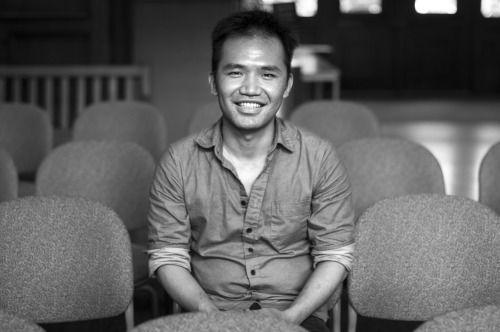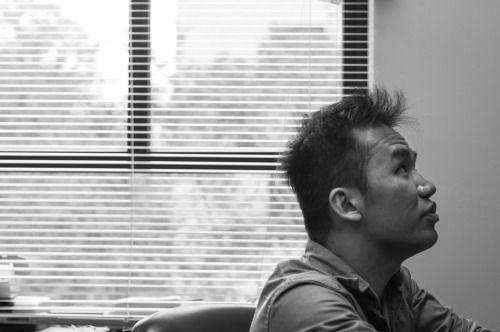For Mass Communication PhD student Minjie Li research is not just a means for finishing a thesis. It is preparation for the classes he hopes to teach if he becomes a professor in the either United States or his home country, China.
Li is from Hainan, an island in southern China, which locals call the Hawaii of China. He said coming to Louisiana was a good transition, because the weather was similar and the people were just as laid back as the ones he left at home.
LSU is the only college Li has attended in the United States since he finished his undergrad at a college in Beijing.
On his first day at LSU Li said he was required to go through tests to prove his knowledge of English, after already taking numerous tests in his own country to prove he was able to study internationally. Li said looking back “it looks like nothing,” but that it was sometimes frustrating.
Li said, “You feel like as an international student you have to constantly prove yourself at a basic level. You feel like there’s other things like your research or other things that you can contribute. There are other things you can do. On the other hand they make you repeatedly do things that are very basic, but it doesn’t take a huge portion of my time so I’m not concerned.”
As an international student, Li cannot get jobs off of campus until he graduates and applies for OPT (Optional Practical Training). However, because he is enrolled at LSU he can have on campus jobs that help him prepare for his future teaching career.
Li is a graduate assistant at the LSU Manship School of Mass Communication’s Media Effects Lab, or MEL. MEL is a program that provides a pool of student participants for Manship faculty and students conducting research on various media effects. Most assessments may be completed online, but more complex studies are conducted in person to ensure students are only exposed to certain media content.
Li helps to manage and conduct the in-person studies, sharpening his leadership skills for the classroom. Li is also engaged with new technologies at MEL, which will help him prepare his future students for today’s technology-based world.
For instance, eye tracking machines are used to research what ads draw the most attention, and 360 degree monitors allow researchers to observe participants’ behavior.
Li said MEL even has equipment, called Biopack, which measures physiological responses, such as heart rate and skin temperature, to different types of media, such as the physiological response to a horror film.
Li said, “Let’s say when you watch a horror movie, right. There are some people that will just look very calm throughout the whole viewing process but they might just get scared at heart and they just don’t show. The biopack allows you to measure that.”
In addition to coordinating the research facilities for other researchers, Li also conducts his own research.
Li said when he started working for MEL his main interests were media’s effects on psychology and explained one of his past studies.
Li said, “One of my studies was focused on how Spotify and its autosharing mechanism might influence people’s way of consuming and also sharing their music online. Now with auto-sharing people might be concerned about how people perceive them on social media because what they listen to is going to be pushed to their social network.”
In the Spring, Li will teach a visual communication course in the Manship School of Mass Communication while he continued earning his PhD. He is excited not only to share his research in media psychology but to also give them real world examples of how visual communication is used, because of the credentials MEL has allowed him.
Li said, “I created the social media representation for the Media Effects Lab. I also created the visual identity, including the logos and the website. All the internet identity that the Media Effects lab has now, I created it, so part of that experience gives me some kind of credential.”
After graduation, Li hopes to be a professor in media psychology and gender studies, and is excited to be able to continue and share his research while teaching.
Li’s interest in gender studies is due in part to his current research on the effect of the media on the transgender community.
Li said, “I’m really interested in how transgenders are portrayed in the mass media and also how transgenders use new technology to negotiate their bodies and rights.”
Li hopes that subjectivity will decrease in the media, especially in reporting the transgender community.
Li said, “That’s why I am doing my research, because my research is my activism. You apply the research method, you’ll learn and you’ll integrate them with the subject that you’re really interested in. Though your findings you will be able to understand what those social minority groups are going through.”
Minjie Li
By Hayley Franklin
May 3, 2016

Alberto Valdés
Alberto Valdés








